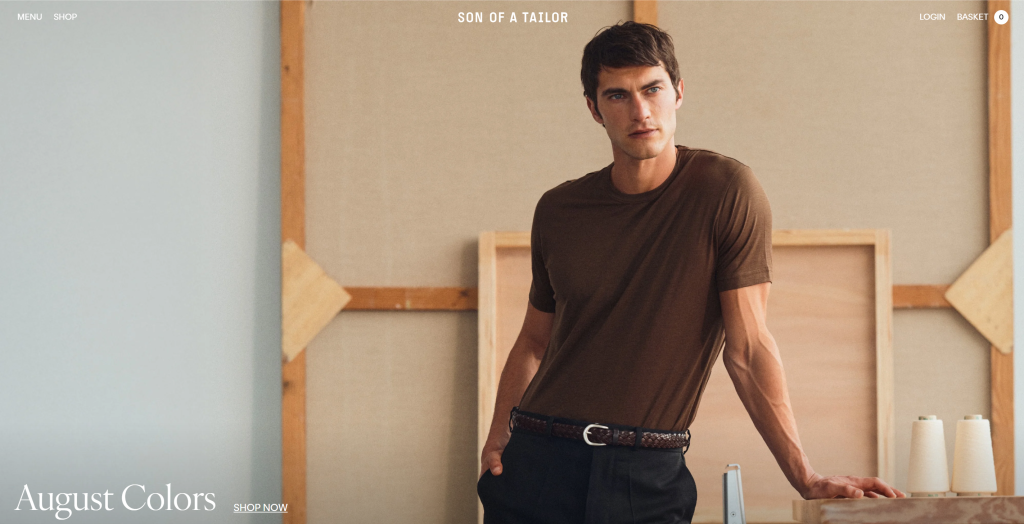


In the fast-paced world of fashion, slowing down can be a radical act. One Danish brand doing just that is Son of a Tailor — a Copenhagen-based clothing company that has made waves across Europe with its made-to-order menswear model and commitment to reducing textile waste.
As part of our upcoming FAIR FASHION Case Studies Collection, we’ve taken a closer look at how Son of a Tailor is combining sustainability and digital innovation to challenge the conventional fashion system.
The brand’s core idea is simple, yet powerful: clothes should be made to fit people — not the other way around. Using a proprietary "Size Algorithm" and customer-submitted data, Son of a Tailor creates garments that are individually tailored to each buyer, eliminating the need for standardised sizing and overproduction.
Rather than holding large inventories that may go unsold or discarded, every Son of a Tailor piece is produced only after it’s been ordered. The result? A more sustainable supply chain that avoids the pitfalls of fast fashion.
What makes Son of a Tailor especially interesting for fashion educators and students is how the company uses technology to create ethical and circular design systems:
As we prepare the next generation of fashion professionals, case studies like this offer tangible examples of what “green and digital transitions” can look like in practice.
Sustainability is more than a value for Son of a Tailor — it’s embedded into the company’s entire business model. From their use of renewable energy in production facilities to their choice of natural, biodegradable fabrics, the brand demonstrates how environmental responsibility can drive both product quality and customer loyalty.
This case study is especially relevant for educators teaching:
It’s a model that opens up new conversations in the classroom: What if every fashion business only made what it sold? What does personalised fashion mean in the age of AI? Can slower fashion still be profitable?
We’re excited to be adding Son of a Tailor to our upcoming Case Studies Collection — part of the FAIR FASHION Toolkit available at the end of summer 2025. The collection will spotlight leading European fashion businesses that exemplify sustainable, inclusive, and digitally forward thinking.
📌 Explore our Toolkit & Case Studies landing page: https://fairfashionproject.eu/resources/toolkit-case-studies-collection/
📷 Follow us on Instagram: @fairfashioneu
💼 Connect with us on LinkedIn: FAIR FASHION Project
Do you teach about business models like Son of a Tailor? We’d love to hear how you bring real-world case studies into the classroom!